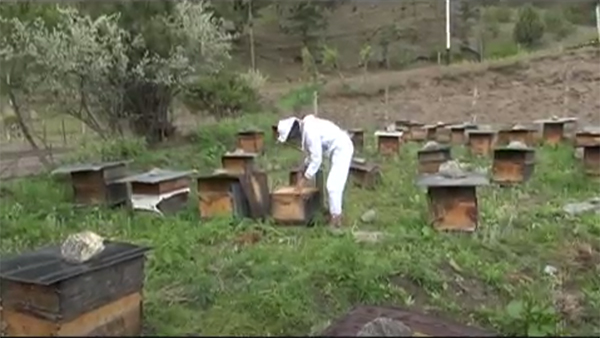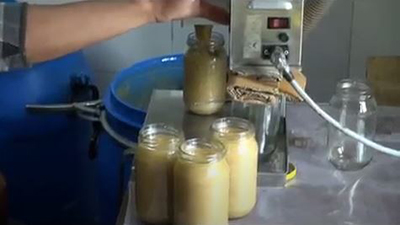 With the COVID-19 pandemic affecting all spheres of the economy, beekeepers in Bumthang are also feeling its reverberations. The Beekeepers Cooperative of Bhutan at Jalikhar is struggling to find a market for their honey with their primary customers, the tourism sector, shut down in the wake of the pandemic.
With the COVID-19 pandemic affecting all spheres of the economy, beekeepers in Bumthang are also feeling its reverberations. The Beekeepers Cooperative of Bhutan at Jalikhar is struggling to find a market for their honey with their primary customers, the tourism sector, shut down in the wake of the pandemic.
And to make the matter worse, bees have started dying since last year in more than seventy per cent of the cooperative’s hives.
By this time, beekeepers in Bumthang usually buzz in excitement with the harvesting season just around the corner. However, this year, their prospects look bleak as bees keep dying due to mysterious causes.
Sangay Khandu, a Beekeeper in Jalikhar says bees leave the hive during the day and never come back. “Most of the hives are empty now. I had 160 hives of which 120 of them have no bees in them now. I have stacked up the empty hives in a store. Usually, by this time we place the honey super atop the hives to gather honey but this year, there is no point doing that,” he said.
Tsheten Dorji, a Board Member for Beekeepers Cooperative of Bhutan in Bumthang says unlike previous years, the combs are all empty. He shares this will affect their livelihood, “There are lots of people from Bumthang and other districts in the cooperative who solely depend on the sale of honey for their livelihoods; they have been affected the most this year. Usually, each member earn at least Nu 200,000 annually but that’s not going to happen for sure this season.”
“Out of 1100 hives in the cooperative, the entire colony got wiped out in more than 800 hives. We reported about this mass death of bees to the Dzongkhag administration and the administration asked the RNR Research Centre to study about the causes. The RNR researchers visited our cooperative but so far we haven’t known what the exact disease or the cause is. We noticed the bees discharging yellowish droppings like they caught diarrhoea. They leave the comb and die outside the hive. This is not caused by lack of food,” added Tul Bhadur Chhetri, the Chairman of the Beekeepers Cooperative of Bhutan in Bumthang.
The problem is not just the death of bees. The cooperative is also suffering financially with most of their honey left stockpiled in their store without buyers.
 Chimi, a Board Member of the Cooperative says the COVID-19 situation has badly affected their business. “We approached the Dzongkhag administration for support and they have been telling us that they will render their help. They also talked with the Agricultural Marketing and Cooperatives department from which our chairman got a call saying the department is looking for solutions,” he said.
Chimi, a Board Member of the Cooperative says the COVID-19 situation has badly affected their business. “We approached the Dzongkhag administration for support and they have been telling us that they will render their help. They also talked with the Agricultural Marketing and Cooperatives department from which our chairman got a call saying the department is looking for solutions,” he said.
“Our cooperative has been certified by the International Standards Organization about two years ago. However, we have never tried exporting our honey, as our harvest can’t even meet the local demand. Nevertheless, it would be helpful for us if the government can find a market for us overseas. Our product has the quality that meets international standards, so we have the potential to export them,” added Tsheten Dorji, a Board Member of Beekeepers Cooperative.
 In a bid to offload their honey stock, the cooperative has come up with a new product called the Cream Honey, which will soon hit the market. Prices range from Nu 150 to 380 per jar of the honey.
In a bid to offload their honey stock, the cooperative has come up with a new product called the Cream Honey, which will soon hit the market. Prices range from Nu 150 to 380 per jar of the honey.
“It is the same honey that we sell in jars but the Cream Honey is made by stirring the honey for two hours daily using a filler machine for a month. It tastes better than the common honey. As it is creamy, it is very handy when we spread it on bread and other edibles because it doesn’t crystallize like the regular honey,” added Chimi, a Board Member of Beekeepers Cooperative of Bhutan.
Meanwhile, the Agriculture Ministry is exploring means to export the cooperative’s honey. Dr Sonam Wangchuk from the ministry’s RNR Enterprise Development Coordination Unit said they have talked with three individuals to potentially export the products to the United States and Europe when flight restrictions are eased and international markets start returning to normalcy. He also said officials from the ministry are on their way to Bumthang to discuss the quality and pricing of their products with the farmers.
There are 83 members in the cooperative currently. It is the largest honey-producing cooperative in the country with a yearly harvest averaging 20 metric tonnes. It was established in 1998.
Kipchu







